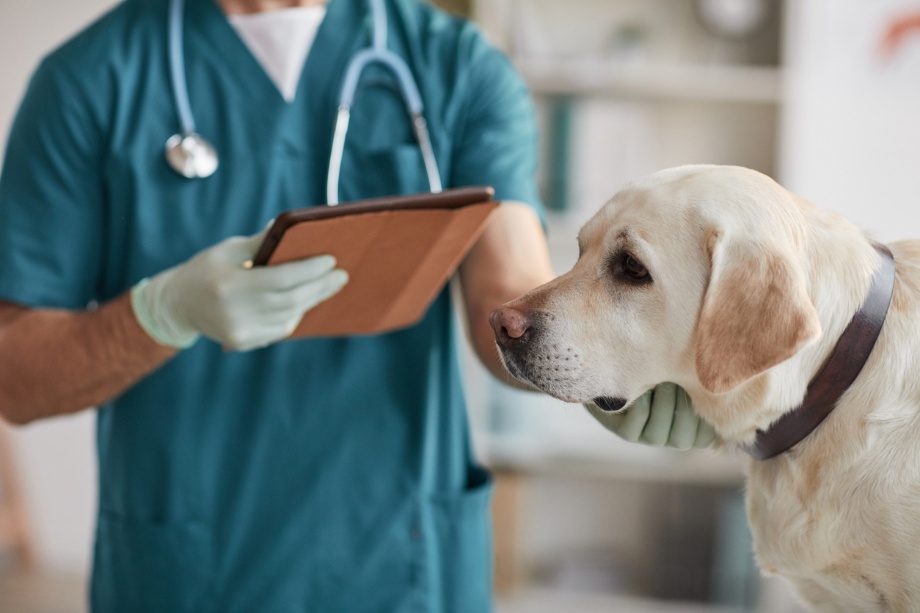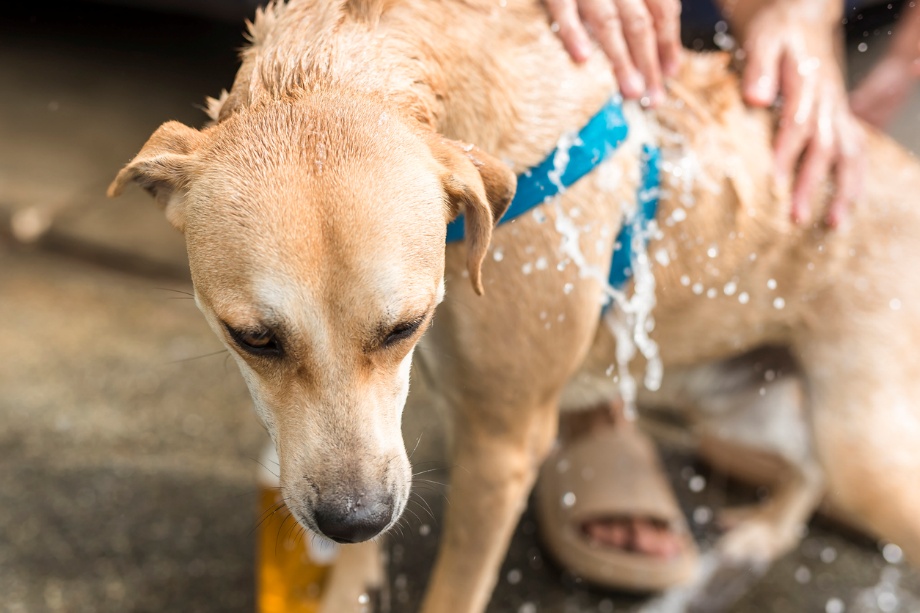Springtime in Schoolcraft brings fresh blooms and warmer days, but for many local dogs and cats, it also marks the beginning of allergy season. While humans may deal with sneezing and watery eyes, pets often suffer in silence with itchy skin, ear infections, and other uncomfortable symptoms. At Schoolcraft Veterinary Clinic, we understand how frustrating pet allergies can be—for both pets and their owners. That is why we are committed to providing trusted, compassionate, and effective pet allergy care for our patients.
Types of Primary Pet Allergies
Understanding the source of your pet’s allergy is key to effective treatment. There are three primary types of pet allergies:
Common Environmental Allergies (Atopy)
Outdoor Allergens (Seasonal)
- Tree Pollen – Common in spring; trees like oak, maple, and birch release pollen that can trigger reactions.
- Grass Pollen – Peaks in late spring and summer. Timothy, Bermuda, and Kentucky bluegrass are typical culprits.
- Weed Pollen – Becomes problematic in late summer and fall. Ragweed is especially common in Michigan.
- Mold Spores – Found in leaf litter and damp areas, especially during fall or after heavy rain.
Indoor Allergens (Year-Round)
- Dust Mites – Thrive in carpets, bedding, and furniture.
- Mold – Can grow in basements, bathrooms, or anywhere with moisture issues.
- Dander (from other animals) – Pets can even react to the dander of other animals in the home.
- Household Cleaning Products or Fragrances – Scented candles, air fresheners, or harsh cleaners can act as irritants.
The changing Michigan seasons mean pets are often exposed to different allergens throughout the year. Pets with atopy often start showing signs between one and three years of age, and symptoms can worsen over time without proper pet allergy care.
Flea Allergy Dermatitis (FAD)
Flea allergies occur when a pet has a hypersensitive reaction to flea saliva. Even a single flea bite can cause intense itching and discomfort. This type of allergy is common in both cats and dogs and often leads to severe skin irritation, particularly around the base of the tail, lower back, and inner thighs. Preventative flea control is essential to maintaining your pet’s comfort and avoiding flare-ups.
Food Allergies in Dogs and Cats
Food allergies develop when a pet’s immune system reacts to a specific ingredient in their diet. For dogs and cats, the most common allergens include:
- Chicken
- Beef
- Dairy
- Eggs
Food allergies can cause chronic ear infections, skin issues, and sometimes gastrointestinal symptoms like vomiting or diarrhea. Unlike food intolerances, food allergies trigger immune responses and require careful dietary management for long-term relief.
Some pets may experience multiple types of allergies simultaneously, making diagnosis and treatment more complex.
Common Signs of Pet Allergies

Dogs and cats can exhibit signs of allergies in several ways. Look for these common symptoms:
- Excessive scratching, licking, or biting at the skin
- Red, inflamed, or irritated skin
- Frequent ear infections
- Fur loss or thinning patches
- Hot spots or irritated skin areas
- Watery eyes, nasal discharge, or sneezing
- Scooting or chewing at the rear
Studies have shown that skin allergies can be a reason for pet behavior problems as well. Because many of these signs overlap with other health conditions, it is essential to consult with a veterinarian. Schoolcraft Veterinary Clinic offers comprehensive pet allergy care, including thorough diagnostic evaluations and customized treatments for dogs and cats.
Diagnosis and Treatment for Pet Allergies

Identifying the cause of a pet’s allergy is a detailed and thoughtful process. At Schoolcraft Veterinary Clinic, we begin with a thorough physical examination and medical history review to assess your pet’s symptoms and lifestyle. Based on clinical signs, we may recommend:
- Skin scrapings or cytology to check for secondary infections
- Allergy testing, including blood tests or intradermal skin testing
- Flea comb examinations to detect flea activity
- Food elimination trials with specialized diets
Once the allergen is identified or narrowed down, we create a personalized treatment plan. Options may include:
- Medications such as antihistamines, corticosteroids, or modern allergy medications like Apoquel or Cytopoint
- Topical therapies including medicated shampoos and sprays
- Allergen-specific immunotherapy (allergy shots or drops)
- Consistent flea prevention programs
- Specialized hypoallergenic or novel-protein diets
With expert pet allergy care, pets can find relief and enjoy a significantly improved quality of life.
Helping Your Pet Stay Comfortable at Home

In addition to professional care, you can take proactive steps at home to reduce allergens and support your pet’s comfort:
- Bathe your pet with veterinarian-approved hypoallergenic shampoos (as recommended)
- Wipe down your pet’s paws and coat after outdoor activities
- Wash bedding and toys weekly in hot water
- Use a high-efficiency particulate air (HEPA) filter in your home
- Vacuum carpets, rugs, and furniture frequently
- Keep your pet on a year-round flea prevention plan
Partnering with Schoolcraft Veterinary Clinic for pet allergy care ensures that your pet receives the best possible support, whether seasonal allergies or year-round irritants are involved.
We Are Here to Help Relieve Your Pet’s Allergies
Your pet deserves to feel comfortable, no matter the season. If you are noticing signs of allergies in your dog or cat, do not wait. The earlier we can identify and address the cause, the sooner your furry companion can start to feel better. Our knowledgeable team is here to guide you through every step of the process—from diagnosis to treatment and ongoing support. Contact us today to schedule an appointment and discover howpet allergy care can make a lasting difference in your pet’s health and happiness.
Schoolcraft Veterinary Clinic
4872 W U Ave,
Schoolcraft, MI 49087,


